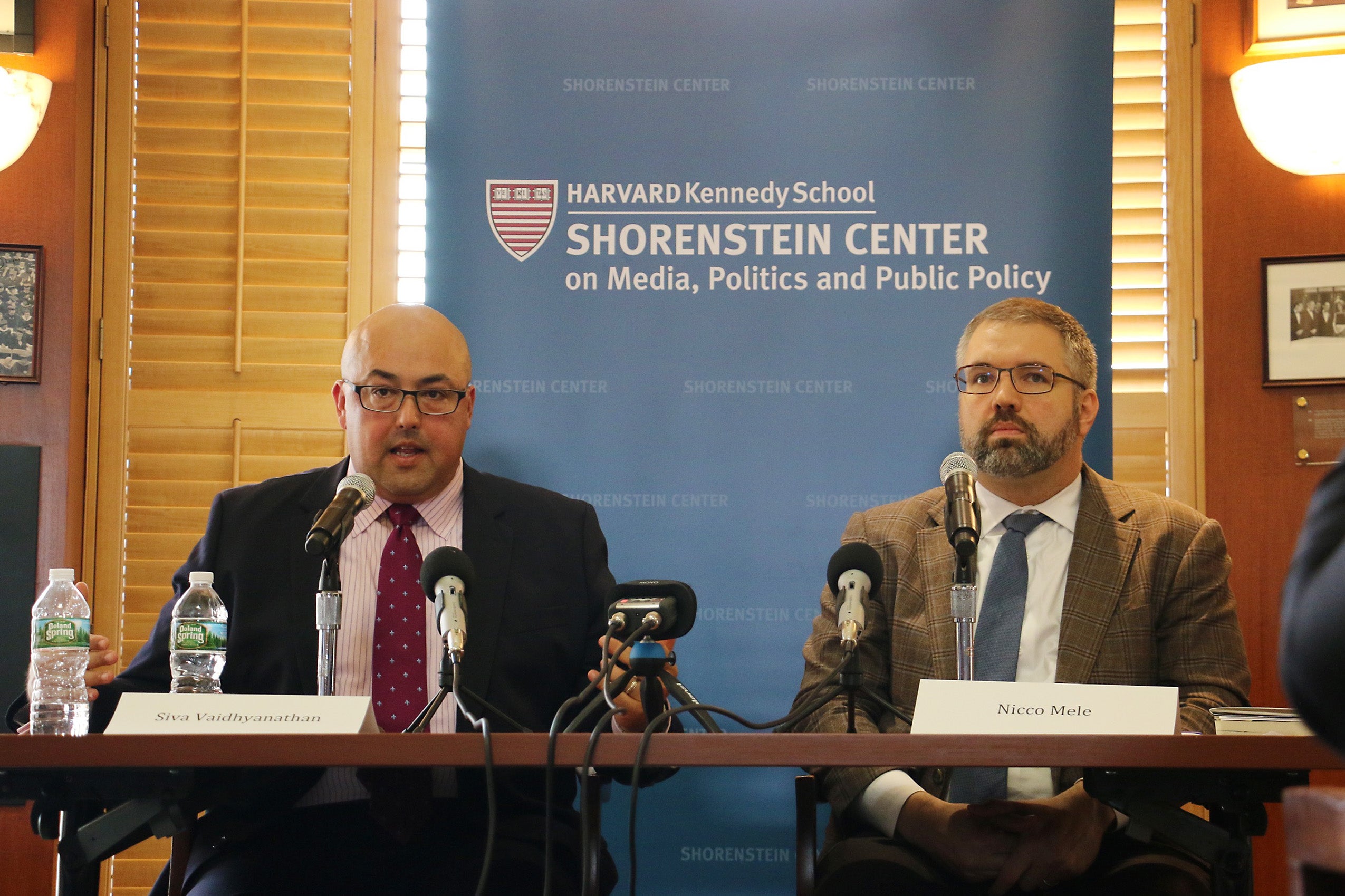While the data firm Cambridge Analytica and questions of data privacy propelled Facebook into the headlines in recent months, Facebook has been under the critical eye of media scholars for years.
“The sad conclusion to my book is that the problem with Facebook is Facebook,” declared Siva Vaidhyanathan, the Robertson Professor of Media Studies and director of the Center for Media and Citizenship at the University of Virginia, during his opening remarks at the first of this semester’s Berkman Klein Center Luncheon Series, which was co-sponsored with the Shorenstein Center on Media, Politics and Public Policy.
The event, moderated by Nicco Mele, director of the Shorenstein Center, revolved around Vaidhyanathan’s latest book, “Antisocial Media: How Facebook Disconnects Us and Undermines Democracy.” Vaidhyanathan cited the sheer scale of Facebook, with over 2 billion people, along with its underlying engagement and promotion algorithms and its precise, targeted advertising system, as central to Facebook’s problems with disinformation, surveillance, and data sharing that have been associated with the platform.
According to Vaidhyanathan, the crux of Facebook’s issues stem from the idea that Facebook is a political tool, although, he said, those at Facebook would likely disagree. Facebook has been criticized for its role in the 2016 United States presidential election, in large part due to its targeted advertising system to both encourage and discourage voters, which Vaidhyanathan further explains in “Antisocial Media.” Further, beyond the United States, Facebook also has much broader political impact in countries around the world.
Yet Facebook’s intention is likely not to cause harm or to have a negative impact. One attendee at the luncheon, a former Facebook employee, pointed out during the discussion that the company has features to encourage people to register to vote, and to vote on election day. While on the surface this seems like a positive sign, Vaidhyanathan said he doesn’t think this would do enough to help ameliorate the underlying problems between Facebook and democracy.
“Having Facebook reminders for people to register to vote and to vote might move things a little bit, marginally,” he said. “But it doesn’t address the problem that there is an active force to undermine democratic participation in this country and in many, if not most, countries right now.”
Despite his concerns with Facebook, deactivating individual accounts is not the solution, Vaidhyanathan argued. “You and I have no influence as Facebook users, and we should not pretend we do,” he said. “But as citizens, we do.”
He encouraged participation in traditional democratic processes, such as getting involved in town hall debates and forums. “We should gather, debate, inform our elected leaders that we have demands and concerns, and order them to address these problems in a serious fashion, and we have not done that,” he said, noting that this is a difficult feat to achieve.
“This is not just about reining in Facebook and Google. It’s really about making sure that we can operate as citizens in a democratic republic in the 21st century. What sort of media ecosystem do we need, do we deserve, to be able to operate responsibly as citizens in a democratic republic?” he asked. “We have not even asked that first question, but we really need to; it’s rather urgent.”
Vaidhyanathan’s full talk can be heard on the Shorenstein Center’s Media and Politics podcast. The Berkman Klein Center Luncheon Series is a weekly forum for conversations about Internet issues and research. It is free and open to the public.
